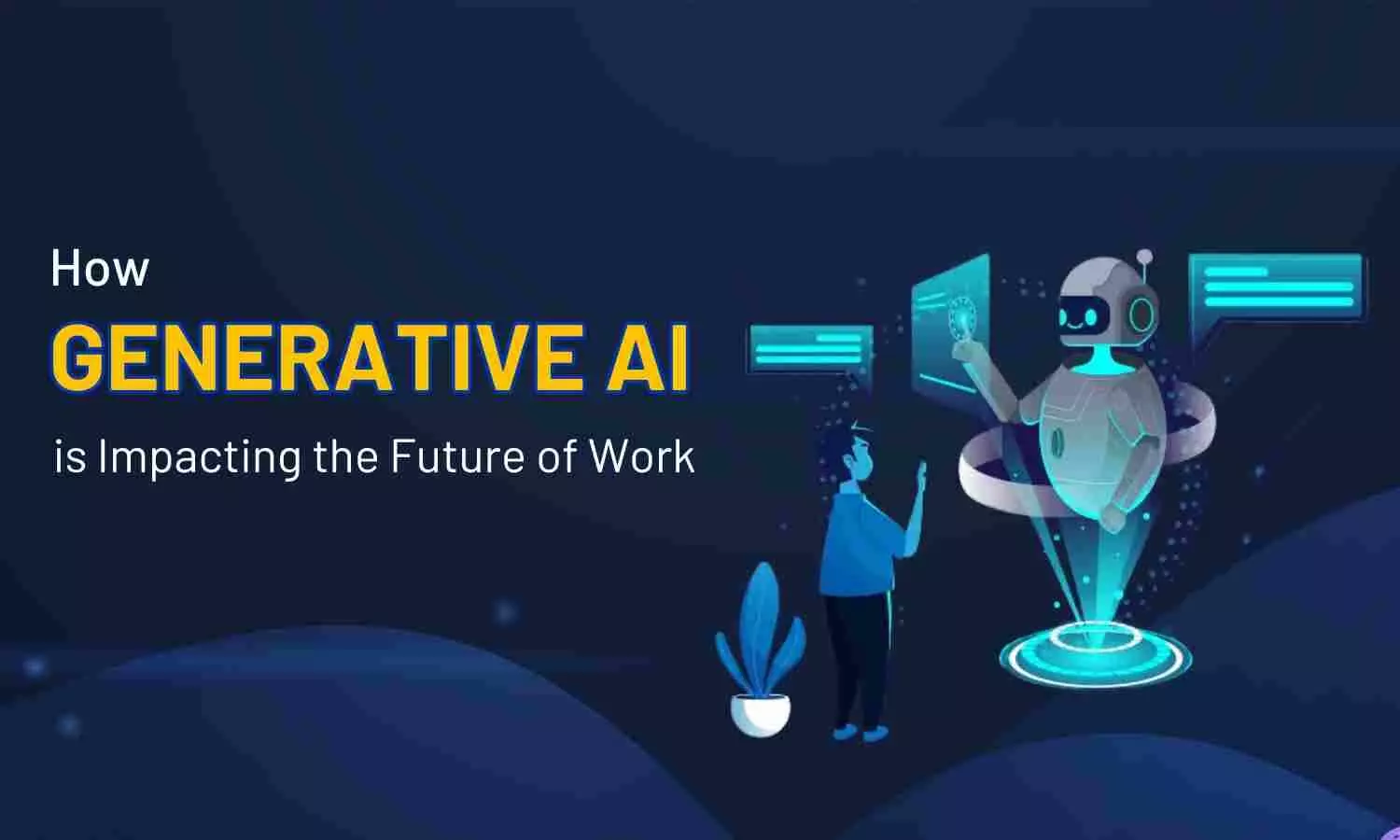How Generative AI is Impacting the Future of Work
Generative AI is transforming the global workforce, boosting productivity, reshaping job roles, and driving the need for upskilling while addressing ethical challenges in various industries.
How Generative AI is Impacting the Future of Work

The global workforce is undergoing a significant transformation, fueled by the rapid advancement of Generative AI. Unlike traditional AI systems that primarily focus on analyzing data and automating routine tasks, Generative AI goes a step further - it creates. From text and images to music and software, this new breed of AI has demonstrated the ability to generate original content, revolutionizing industries along the way. Tools like ChatGPT and DALL-E have brought Generative AI into the spotlight, accelerating its adoption in a wide range of sectors. As businesses recognize its potential, we are beginning to see how this technology will impact the future of work.
Supercharging Productivity and Creativity
Generative AI isn't just about doing things faster. It’s about helping professionals work smarter. It allows individuals in fields like marketing, design, and writing to generate initial drafts or design concepts in a fraction of the time it used to take. For instance, a marketer can use AI to create a campaign outline in minutes, allowing them to focus more on strategy and innovation.
A McKinsey report highlights the long-term potential, estimating that Generative AI could drive global labor productivity growth by 0.1 to 0.6 percent annually through 2040. This productivity boost could generate an additional $2.6 trillion to $4.4 trillion across various industries, showcasing the immense economic value of widespread AI adoption.
Reshaping Job Roles and Skills
As Generative AI takes over routine and repetitive tasks, the nature of many job roles will inevitably change. According to the World Economic Forum, around 50% of companies expect AI to create job growth, while 25% foresee some level of job loss. This reflects a broader shift in the workforce, where adaptability and continuous learning will be essential.
And this impact of AI will not be uniform.
High-income countries are likely to see greater exposure to automation, with around 5.5% of total employment potentially affected, compared to just 0.4% in low-income countries. This disparity underscores the importance of developing targeted strategies to address job displacement, ensuring that AI's benefits are distributed more equitably.
The Growing Need for Upskilling
With the rise of Generative AI, there is an urgent need for upskilling and reskilling the workforce. The World Economic Forum estimates that six in ten workers will need additional training by 2027 to keep pace with AI’s advancements. Yet only 45% of employees feel confident that their organizations will provide the necessary training to adapt to these changes.
This skills gap presents both a challenge and an opportunity. Companies that invest in employee development programs, focusing on AI and related technologies, are likely to see significant returns in productivity and employee satisfaction. Furthermore, individuals who take it upon themselves to master AI tools will be better positioned to thrive in a future where AI plays an integral role in almost every job.
Ethical Considerations and Challenges
As with any transformative technology, Generative AI brings a set of ethical challenges that must be addressed. One of the primary concerns is the potential for bias in AIgenerated content. Since AI models are trained on vast datasets, they can inadvertently pick up and replicate societal biases present in that data. This issue is particularly concerning in industries like journalism or hiring, where unbiased decision-making is crucial.
The Path Forward: Humans and AI Working Together
The future of work is not about AI replacing human jobs but about AI and humans collaborating to achieve higher levels of productivity and innovation. Those who learn to harness the potential of Generative AI will not only amplify their own skills but will also unlock new possibilities for themselves and also for their organizations.

